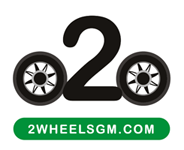The start of December marked the beginning of the Department for Transport’s Christmas THINK! Campaign, which aims to reduce the number of people who drink and drive or ride over the festive period.
Called ‘Drink a Little. Risk a Lot,’ it sets out the key messages on why booze and bikes just do not mix. It does so by focusing on the far-reaching consequences of drinking and riding – whether it’s losing our licences, impacting on social freedoms, or risking injury to ourselves or our mates.
Two Wheels Greater Manchester is always on the side of bikers – but not where drinking and riding is concerned.
What’s the risk?
The THINK! Campaign highlights how one bad choice on a night out may not just inconvenience your life - it could change it forever.
Alcohol and recreational drugs are a bike rider’s kryptonite: they lessen our skills, reduce our powers and reflexes, and affect our ability.
Here’s a list of the things it does…
JUDGMENT: The ability to make sound and responsible decisions.
Alcohol affects your mental functions first, and judgment is the first to go, which means reason and caution are quickly reduced. A biker with booze inside is more likely to gamble on making that turn before the approaching car reaches the junction, or to overtake.
And it doesn’t take much booze to feed those mistakes: a rider’s judgment can be affected by alcohol levels as low as .02% BAC. That is about half a pint of normal strength beer, or less than a small glass of wine (125ml).
CONCENTRATION: The ability to shift attention from one point of action to another.
As bikers we need to focus on multiple tasks to stay safe: our speed, road positioning, other traffic, signals and co-ordinating with other road users. Booze affects out ability to focus – so all these skills will take a dip.
COMPREHENSION: The ability to understand situations, signs and signals.
Alcohol reduces the ability to “interpret” situations, signs, and/or signals which a driver must understand and/or respond to quickly to be safe on the road.
It leaves us easily confused and not able to respond to emergency situations, or to comprehend the meaning of simple signals (ie, running through a Give Way sign).
CO-ORDINATION: The ability to co-ordinate motor skills.
In many ways, this is the biggie. Alcohol impairs our ability to co-ordinate our motor skills, beginning with the fine motor skills (steering and balance) that a re so vital to safe riding.
Loss of co-ordination also severely affects reaction time and our ability to react. Just when your lack of co-ordination is putting you at risk, those parts of your brain that help get you out of trouble are on a go-slow, too.
VISION & HEARING: Perception, depth and clarity of vision.
Here’s one I bet you didn’t know: Alcohol reduces our visual acuity by up to 32%. Visual acuity (VA) is better known as the clarity of your vision and your ability to recognise small details with precision.
It also reduces peripheral vision, resulting in tunnel vision, and impairs our ability to judge distance and depth perception (position of bike on road and other road users, for instance).
Alcohol and drugs also dilate our pupils, slowing down their ability to react to headlight glare, potentially leaving us riding ‘blind’ for a few seconds.
It even affects your hearing: alcohol reduces the ear’s ability to hear, muffling sounds, and interferes with the ability to determine the direction of sounds.
REACTION TIME: Ability to see and understand a situation, then take an action.
Alcohol in even the smallest quantities leaves us with severely impaired comprehension and co-ordination in particular, leading to an acute slowing down of reaction times by around 15-25% – and that’s for moderate amounts of alcohol.
Whichever way you look at it, riding and drinking just don’t go together.
If you fancy letting your hair down and having a drinking this Christmas, remember, that’s why Greater Manchester has such good public transport!
But if you do have a drink, remember the effects will still be with you the morning after. Every year plenty of people do the right thing by leaving their bikes at home for a night out, only to still be over the limit the next morning.
If you do party this Christmas, it’s always a good idea to apply an old RAF adage from the Second World War: ‘Leave 24 hours between bottle and throttle.’
